
Closing the Gap 2023 | Emerging and Disruptive Digital Technologies: Regional Perspectives
We are happy to be a supporter of EU Cyber Direct's 2023 Closing the Gap conference, happening 6-7 December 2023 in The Hague, the Netherlands.
The Call for Abstracts is now open, until Thursday 1 June 2023. You can send your abstracts to closingthegap@fgga.leidenuniv.nl.
Call for Abstracts
The EU Cyber Diplomacy Initiative – EU Cyber Direct – is joining forces with research institutions and civil society organisations around the world to organize the third edition of the Closing the Gap Conference. This two-day, in person, conference aims to explore regional perspectives on emerging and disruptive digital technologies. The motivation for this thematic focus is threefold:
- To de-center approaches to emerging and disruptive digital technologies that have largely been Western/European centric
- To explore the diversity of interpretations regarding associated challenges and opportunities
- To enrich the state of the art with novel research ideas, theoretical insights, and empirical case studies
In 2021, the sixth United Nations Group of Governmental Experts focusing on ICTs in international security explicitly mentioned emerging technologies in its consensus report for the first time. In doing so, the report stated that “new and emerging technologies are expanding development opportunities,” whilst noting that they “may also have important human rights and ICT security implications.” Taking this acknowledgement as its point of departure, and recognizing that these technologies and their associated risks, opportunities, controversies and threats may differ across geographies, the 2023 Closing the Gap Conference will explore regional interpretations of what is and can be considered emergent and disruptive digital technologies. Contributors are invited to consider a broad range of digital technologies such as (but not limited to) mobile, fintech, AI, quantum computing, 5G, IoT, biometrics, and blockchain, in both the military and civil spheres.
In keeping the thematic focus broad, the conference aims to bring to the fore a variety of perspectives, ideas, and mechanisms from different disciplines to inform policymakers, cyber diplomats and academics, as well as contribute to evidence-based policymaking. Scholars are welcomed from fields as diverse as international relations, security studies, political science, law, behavioural science, computer science, science and technology studies, sociology, and communication studies. The conference is aimed at both emerging and established academics, think tankers and researchers, and early career researchers are highly encouraged to apply.
Goals
The conference has three primary objectives:
- Forging collaboration between scholars and practitioners to produce evidence-based policymaking and policy-relevant research;
- Encouraging productive exchanges between different generations of scholars (emerging and established researchers), sectors (government, private sector, academia, NGOs) and regions (Global South-North);
- Fostering interdisciplinary approaches and encouraging discussions between disciplines
Proposals
Interested authors are invited to submit their paper proposals on topics linked to the main theme of the conference, including for instance:
- Conceptualisations of emergent and disruptive digital technologies. Who gets to decide what is disruptive?
- The societal impact of these digital technologies in particular regions
- Case studies of policy approaches taken in response to these digital technologies
- The specific role of non-state actors or public-private partnerships in producing policy responses to these digital technologies
- Mechanisms and tools for sharing knowledge and promoting cooperation between policymakers/diplomats and other relevant epistemic communities in responding to these digital technologies
- How the future is mediated and imagined via these digital technologies
Submitted papers should be grounded in solid academic research, but focus on policy implications and recommendations. An emphasis is placed on paper proposals approaching the topic in creative ways, and critically engaging with existing policies and frameworks in a constructive, imaginative, and substantively well-informed manner.
How to submit your abstract
Those interested in participating in the Closing the Gap Conference are invited to send an abstract of no more than 500 words to closingthegap@fgga.leidenuniv.nl by Thursday 1 June 2023. The outcome of the selection process will be communicated to authors on Thursday 15 June 2023.
Output
Selected authors will be invited to contribute to an edited volume, which will be published in the summer of 2024, and which will have a policy-orientated focus. As such, the published contributions will be relatively short (5.000 words) and as previously mentioned, should focus on the policy implications and potential recommendations of the research, targeting an audience of policymakers and cyber diplomats.
Practical information
The organizers will cover full costs of participation (travel, accommodation, and visa expenses) for authors of the selected papers.
Selection Committee
- Luca Belli, Fundação Getulio Vargas Law School / CyberBRICS
- Dennis Broeders, The Hague Program on International Cyber Security / Leiden University
- Fréderick Douzet, University of Paris 8 / GÉODE
- Maria Lorena Florez Rojas, University of Groningen
- Caitríona Heinl, University College Dublin
- Margaret E. Kosal, Georgia Tech
- Chantal Lavallee, Royal Military College of St-Jean
- Lu Chuanying, Shanghai Institute for International Studies
- Bruno Oliveira Martins, PRIO
- Tal Mimran, Hebrew University of Jersusalem
- Patryk Pawlak
- Nanjira Sambuli, Carnegie
- Elke Schwarz, Queen Mary University of London
Tentative Timeline
6 April 2023: Publication of call for abstracts
1 June 2023: Deadline for submission of abstracts
15 June 2023: Information to selected authors
15 October 2023: Deadline for submission of draft papers
20 November 2023: Feedback from review committee of papers
6-7 December 2023: Closing the Gap 2023 conference
29 February 2024: Deadline for revised/final papers
Summer 2024: Publication of the edited volume
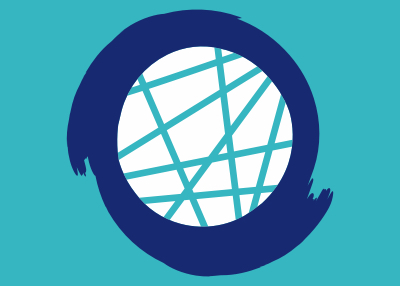

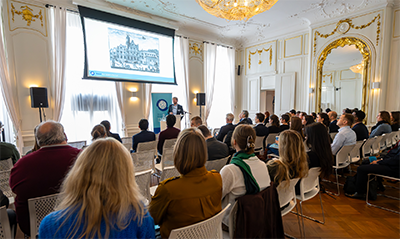

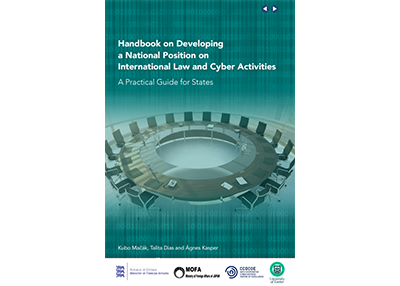

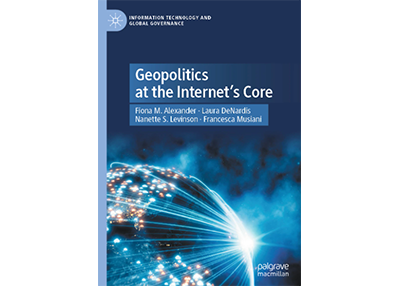
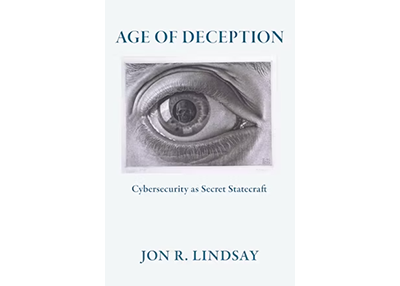
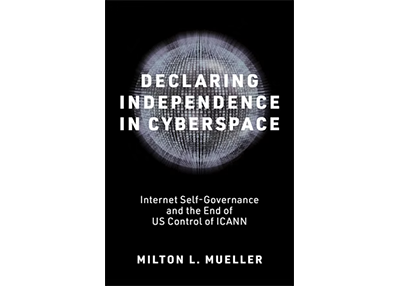





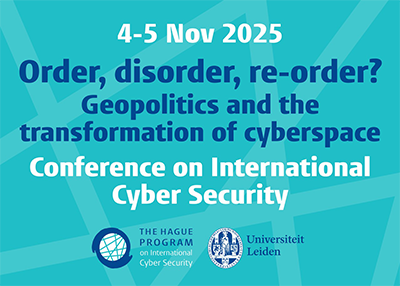
































_400x286.png)









































